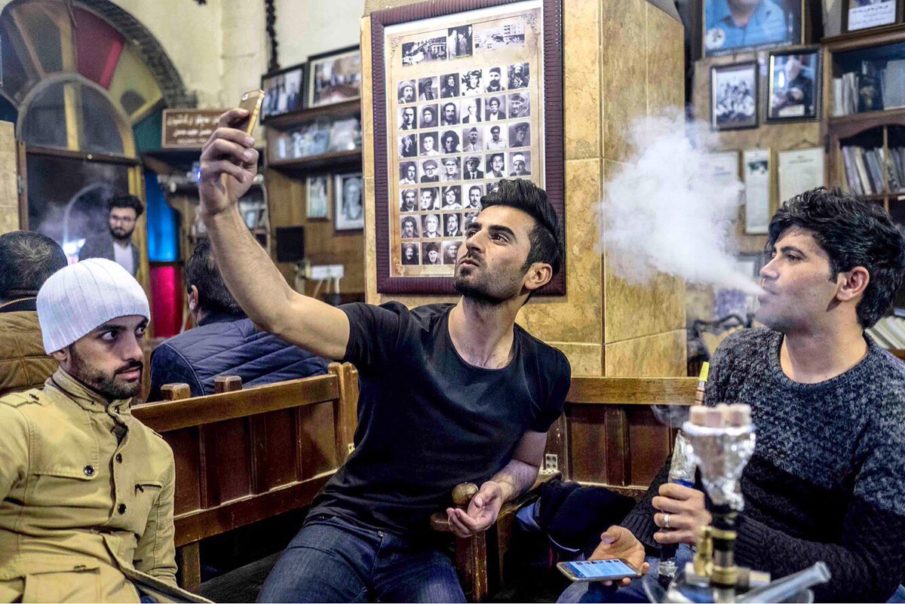In a small shop in a corner of west Mosul, 16-year-old Abdel Halek dusts his shelves and admires the trove of goods he can now sell without fear of punishment by Islamic State.
Mobile phone accessories, playing cards, dominoes, prayer beads – all were banned by Islamic State, and all now sit proudly on Abdel’s shelves.
The smoke from daily air strikes is gone in his al-Jadida suburb, where fighting was fierce and more than 100 civilians were killed in a single coalition air strike, and is now replaced with construction dust as resilient locals try to clear debris and rebuild ruined lives, shops and homes.
Post-IS, clouds also rise once again from groups of men sat round shisha pipes. Such an indulgence, while highly addictive and dangerous for health, is one of the rediscovered freedoms Mosul residents have enjoyed since liberation.
When Daesh was in control you couldn’t get any of this stuff, only now.”
– Abdel Halek, Mosul shopkeeper
The pipes line the windows and a shelf running along the back wall, beneath which are accessories and boxes of flavoured shisha tobacco.
Read the whole story from Middle East Eye.
Already have an account? Sign In
Two ways to continue to read this article.
Subscribe
$1.99
every 4 weeks
- Unlimited access to all articles
- Support independent journalism
- Ad-free reading experience
Subscribe Now
Recurring Monthly. Cancel Anytime.
In a small shop in a corner of west Mosul, 16-year-old Abdel Halek dusts his shelves and admires the trove of goods he can now sell without fear of punishment by Islamic State.
Mobile phone accessories, playing cards, dominoes, prayer beads – all were banned by Islamic State, and all now sit proudly on Abdel’s shelves.
The smoke from daily air strikes is gone in his al-Jadida suburb, where fighting was fierce and more than 100 civilians were killed in a single coalition air strike, and is now replaced with construction dust as resilient locals try to clear debris and rebuild ruined lives, shops and homes.
Post-IS, clouds also rise once again from groups of men sat round shisha pipes. Such an indulgence, while highly addictive and dangerous for health, is one of the rediscovered freedoms Mosul residents have enjoyed since liberation.
When Daesh was in control you couldn’t get any of this stuff, only now.”
– Abdel Halek, Mosul shopkeeper
The pipes line the windows and a shelf running along the back wall, beneath which are accessories and boxes of flavoured shisha tobacco.
Read the whole story from Middle East Eye.
Featured image courtesy of Twitter.










COMMENTS